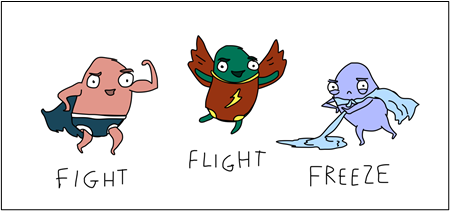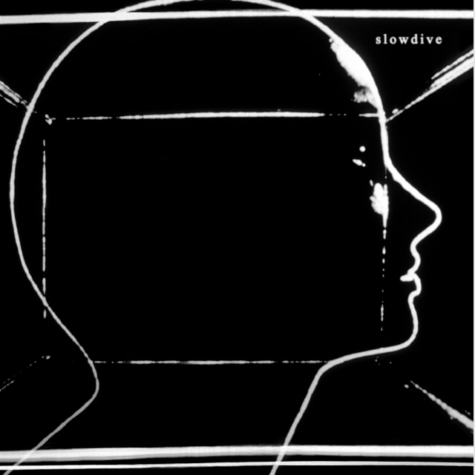Breaking down stress: An interview with T. Maria Alonso

We are all dealing with more stress this year than we could have ever imagined. I recently had the opportunity to talk with T. Maria Alonso, Westtown’s clinical psychologist, about how the pandemic has impacted our stress levels and emotional well-being. She offered important insights as to how the pandemic is affecting Westtown students, why we are experiencing fatigue and worry, and how we can work through some of this COVID stress. The following are quoted segments from my interview with T. Maria, who holds a doctorate degree in clinical psychology.
Blame It on Hormones
“Stress is a physical reaction to a person’s emotions. Stress can be positive—it can be for a wedding, but still you feel the stress—or it can be negative, and in this case, it’s the pandemic and all the hardships that have come along with it. We know that when we have chronic stress … it’s relentless, it just doesn’t stop. We have glands called adrenal glands, and they release something called cortisol, which is a stress-inducing hormone, and if you have chronic stress, you’re going to get high levels of cortisol. And what it does to our students is that it puts them in a constant state of fight, flight, or freeze and shut down. That’s what chronic stress can cause.

This is the sad part: so, you guys are coming to school to learn, and to learn we need to rely on our frontal lobe to focus and pay attention, and we also need the hippocampus to remember things. But when you’re in a fight, flight, or freeze state, your focus and attention go offline. And remember, [with] fight, flight, or even freeze, you can’t engage—you’re disengaged—because you’re just like, ‘I’m not going to connect because I’ve got to get out of here’ or ‘I’m going to shut down’ or ‘I’m going to fight or avoid you.’ So that’s where we’re at. That’s why you hear students say, ‘I don’t feel motivated, I’m tired.’ I saw that in the late fall, but to me it’s just been growing and growing, and some people are just like, ‘Whatever.’ And this goes for high school, for college—you know, you’re just exhausted. Your body is not used to having chronic stress. It’s not what it’s meant for.”
Pandemic Fatigue and Worry
“In my experience [with students], there is kind of a fatigue that I see and what we call in psychology ‘anhedonia,’ or lack of pleasure. It’s almost like things seem bland and [the attitude is] ‘I just gotta get through this.’ So, I would say there is a fatigue at this point. That’s one thing I’ve noticed mental health-wise. I think that we can’t forget that different homes, different families have different hardships—some more than others. And what we know is that this pandemic has stressed families … there has been a loss of jobs, loss of connections, so with all of that combined, I think there’s been an increase in depression and an increase in anxiety. And for students, there is a level of uncertainty, with questions like, ‘Will my college open? Will we be remote? I’m a junior—what does this mean? I was remote and I don’t feel like I was my best self.’ There are so many worries that are fueling the mental health of our students. It’s the second pandemic … the mental health one. I have colleagues who don’t have any openings—they’re busy.”
Talking Helps
“I think every student is different. Some feel comfortable talking to adults that they see daily, and some might just want to talk to their advisor or maybe a dorm parent or even a good friend. It’s okay to start with a friend, and I often count on the adults in our community to say, ‘Hey, I think maybe there are some resources [for you].’ Certainly, at the health center we have six psychology externs who are ready to have a conversation, take a walk outside by the lake, and just talk about what’s going on. Some people might want to meet a little more often, and sometimes people have asked, ‘Can I bring a friend or two?” and we just do a group session and brainstorm ideas about how to handle things. We might give you some apps that would help you de-stress or maybe some apps that take a look at how your mood is doing. We might give you something to read that might be helpful, so depending on each person and what their needs are, we try to resource them.”
A Final Note…
“As human beings, we are very resilient. There have been pandemics before and people have gotten through them, and we will, too. The upside of the pandemic is that it has offered us the opportunity to reassess our values. Social connection, for example, pre-pandemic, was becoming so heavily reliant on technology as the medium. We discovered along the way this year that there is nothing better than being with one another in person, seeing one another’s smiles, grabbing a hand or a simple hug.”
If you are experiencing symptoms of depression and/or anxiety, reach out to T. Maria at [email protected] to request support from our Upper School counselors and other available resources. You can also use TxtAboutIt to send an anonymous question to a dean or administrator by texting 610-557-3600.

On any given day, you can find Steph running down random side streets throughout her beloved hometown of West Chester, PA, or in endless circles around...




